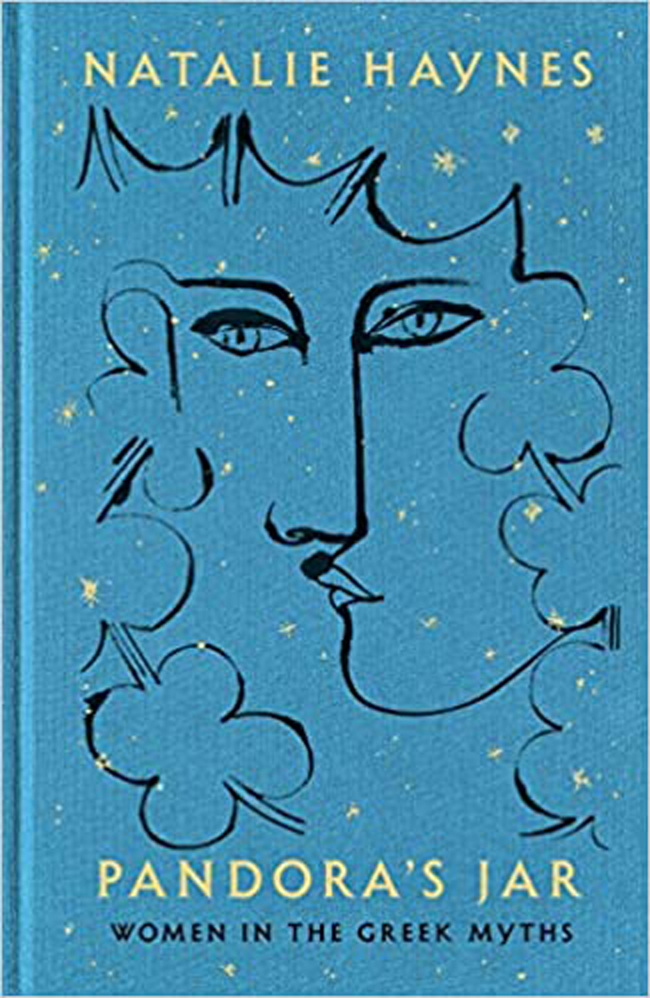
In Pandora's Jar: Women in the Greek Myths, Natalie Haynes, classicist, writer, and broadcaster, seeks to reframe some of the enduring perceptions of women from Greek myth. Haynes places women whose stories have historically been kept largely in the shadows, front and centre stage with her in-depth exploration and reassessment of their legacies. In this book Haynes presents an accessible and thought-provoking collection of essays, mixing scholarship and a biting wit borne from her background as a stand-up comedian.
The book is made up of ten chapters each featuring different women from classical literature and myth, including Pandora, Medea, Penelope, and The Amazons amongst others. Each chapter follows a similar format with Haynes examining the original, often fragmentary, accounts of these women before reframing the perceptions associated with them and how these have changed over the centuries. The chapter on the titular Pandora provides perhaps the most clear-cut example of this, highlighting that the famous ‘Pandora's Box’ was erroneously mistranslated by Erasmus in the 16th century as a ‘box’ and was in fact, a jar, likely an amphora. Although this may seem an unimportant detail in the grand scheme of things, Haynes highlights the clear difference between the accidental knocking over by Pandora of an unstable jar, and the calculated opening of a forbidden box in the understandings and interpretations of the story in centuries hence. Interesting correlations are also drawn between Pandora and other female figures, for example, the similarities between Pandora's story and that of the biblical Eve, both characterised as the first woman, set up and doomed to fail from her very creation.
The chapter on Medusa resonates particularly strongly with current feminist discourse, relating to the blame attributed to women for the crimes perpetuated against them. In many interpretations Medusa has been reduced to little more than Perseus’ battle trophy, a disembodied head, despite being blameless for her transformation into a monster in some early versions of her story. Throughout the volume Haynes seeks to challenge and reframe these perceptions, questioning why these women have come to be viewed the way they have and to explain their changing interpretations over time.
Classical texts are also compared to their modern receptions through examples such as the Twilight Zone, Wonder Woman, Beyonce and Margaret Atwood's Penelopiad to exemplify the continuing influence of these texts on modern storytelling. It can sometimes feel as if the narrative jumps around at a breakneck speed, but these comparisons are effectively couched within the context of wider Ancient Greek society and culture and the pace makes for an invigorating and thought-provoking read.
Despite some of the strongly worded arguments presented, the book never feels like a single-minded diatribe against Classical writers, with some such as Ovid and Euripides being highlighted as having written complex and strong female characters that hold their own against modern heroines. Rather, the book provides a more balanced and nuanced analysis to some of the thornier questions and debates of our current time.
Although not perhaps directly applicable to aspects of school coursework, Pandora's Jar provides numerous jumping-off points for deeper discussions about the interpretation and modern reception of female characters from classical literature and myth. It examines how these women's stories have come down to us through time and invites us to critically examine how these women were viewed and continue to be viewed in the current day.




